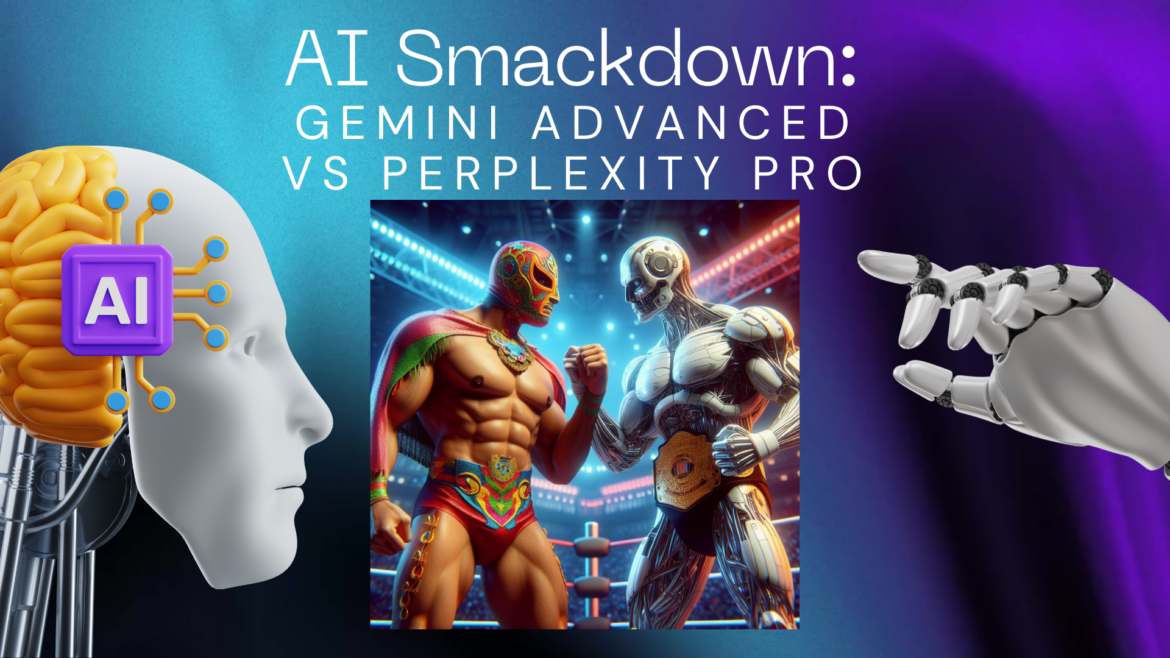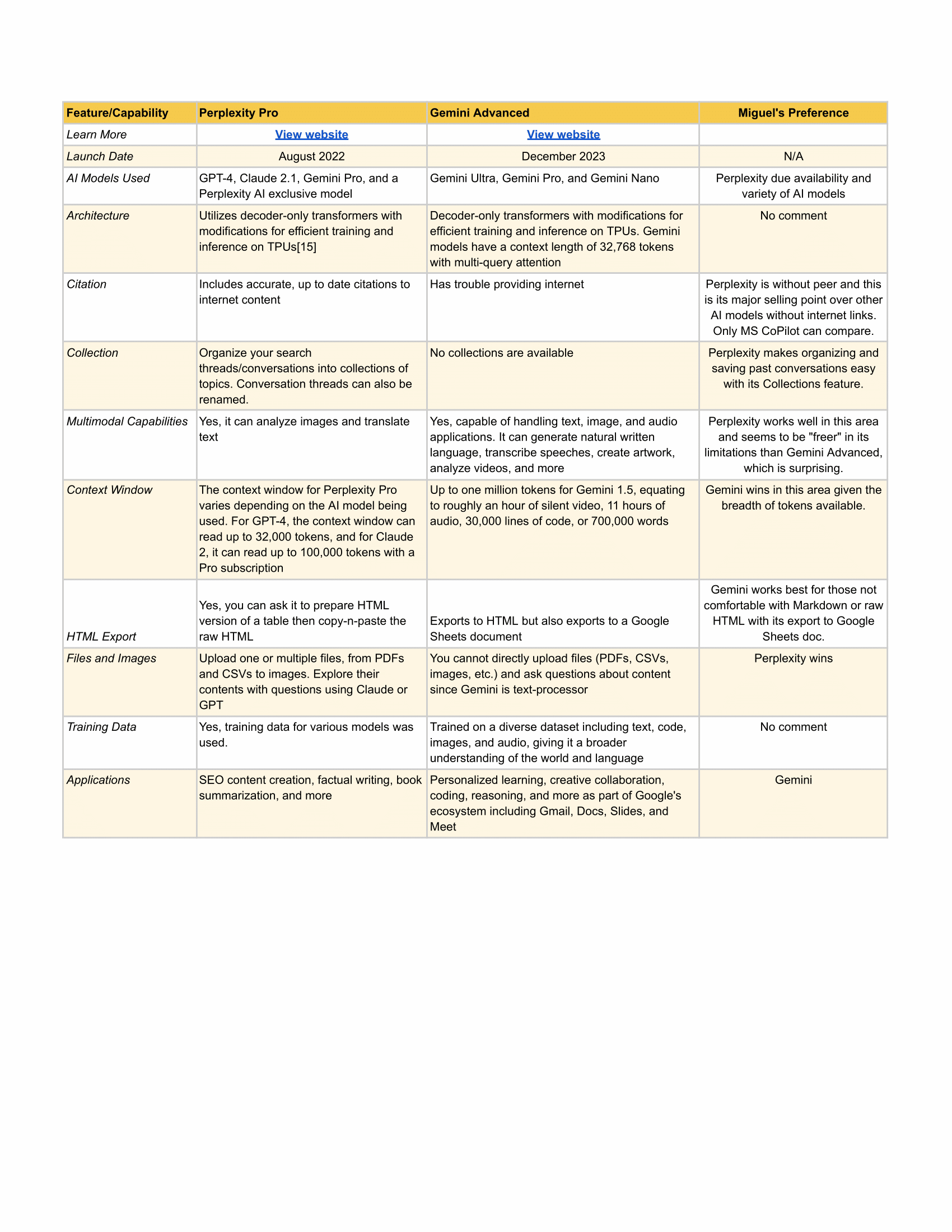Artificial intelligence models change daily. What is impossible today will be child’s play tomorrow. AI middleware is available and knowing what tool to invest in can be difficult. For those of us in education, it’s critical to know what tools work best and can save time. Keeping those needs in mind, let’s take a look at two powerful AI tools: Google Gemini and Perplexity. As someone with access to the Pro version for each, allow me to share my observations.
What is Google Gemini?
Google released Gemini in early 2023. It began showcasing its capabilities in December 2023 and rolled out Gemini for widespread use in February 2024. Like OpenAI’s ChatGPT and Anthropic’s Claude, Google Gemini offers free and advanced ($19.99/mo in the U.S.) versions.
Gemini provides multimodal understanding (e.g. text, image, audio, and video). It is also multilingual and able to work across multiple languages. What’s more, it offers STEM expertise and code generation.

Gemini free version’s features include:
- Searches, translates, and summarizes text
- Generates basic creative writing and code
- Understands and responds to complex prompts
- Export results to a Google Sheets table (handy!)
The advanced version allows for deeper reasoning and understanding with advanced multimodal capabilities. Unfortunately, Google’s Gemini Advanced cautions against relying on its internet citations. This is an important point to keep in mind.
What is Perplexity.ai?
Launched in 2022, Perplexity combines a search engine with a conversational AI. Perplexity relies on large language models like ChatGPT 3.5 and 4, Claude 3, Google Gemini, and its own models. It responds to queries and includes accurate internet citations.
This point about accurate internet citations is a game-changer. Where other AI models stumble, Perplexity works:
Perplexity AI’s ability to provide sourced information is a critical aspect for education. It values the credibility and origin of information. This aids in fostering a culture of critical thinking and source-based learning. It empowers teachers and students to evaluate in a critical way the information they get. Source: Perplexity.ai

Additionally, you can copy results, including those in table format, as Markdown or HTML. I found Perplexity Pro to be slow at generating HTML but fast at Markdown, so it’s helpful to use a Markdown to HTML converter.
The pro version ($20/month or $200/year) offers a higher query limit and access to GPT-4 for quick searches. Plus, its collections feature allows you to track conversations. My TCEA Collection has 28 different conversation threads, while Critical Thinking has eight. These can be relied on to house mega prompts that are re-usable for quick access.
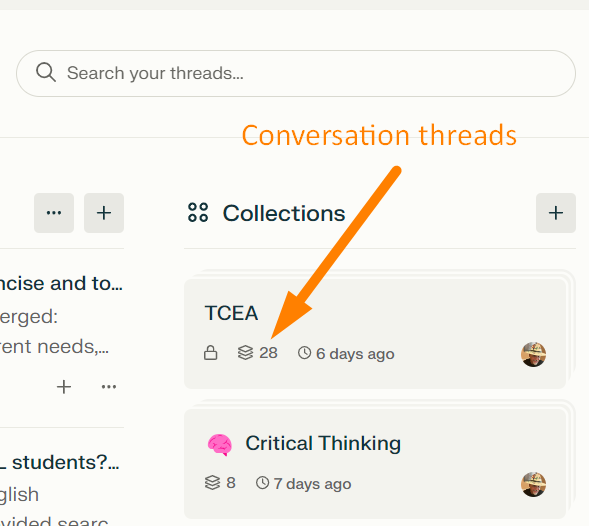
Between these two AIs— Perplexity and Gemini— Perplexity has the ability to switch between various AI models.
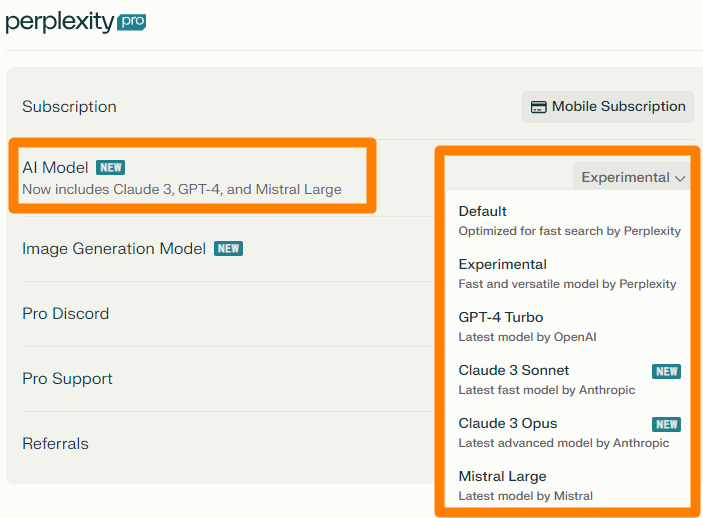
When you sign up for Perplexity, you don’t get one AI model; you get access to several that you can switch to at will.
How is Gemini different from Perplexity?
Google’s Gemini, like other AIs, must tread carefully when trying to get into schools. Most find it useful as a teacher’s aide or assistant. For writers, Perplexity’s focus mode offers quite a few features. While Gemini Advanced stumbles with long prompts, Perplexity excels.
Both Gemini and Perplexity are available as mobile apps. Apple is mentioned as using Gemini’s AI features for its iPhone. However, there are some significant differences between Gemini Advanced and Perplexity.ai Pro. These differences are worth noting, as you can see in the table below.
Comparing Chatbots: Gemini and Perplexity
Ready to see how these two powerful AIs compare? Let’s use a standard prompt for both.
“What is the most effective instructional strategy to use with fifth grade ESL students? Be sure to include citations to illustrate key points in your response”
While Gemini offered an excellent response, Perplexity offered several variations. These variations differed in the details because they were generated by different AI models. Those models include GPT-4 Turbo, Claude 3 Sonnet, Mistral Large, Claude 3 Opus, and Perplexity’s Experimental model.
To keep it objective, I asked ChatGPT Plus to analyze the responses and identify which was the best.
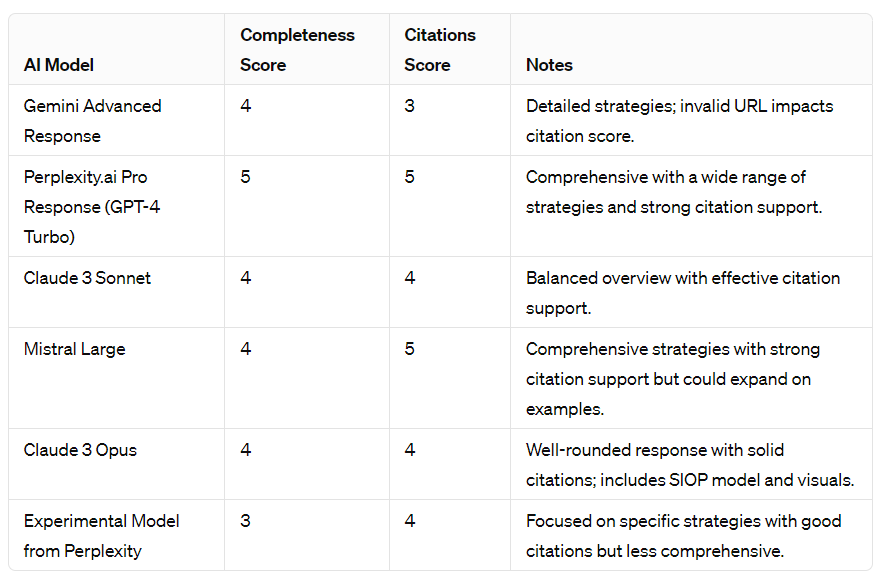
You can read the ChatGPT Plus summary assessment below:
In summary, the Perplexity Pro Response (GPT-4 Turbo) and Mistral Large offer the most comprehensive overviews with strong citation support. Claude 3 Sonnet and Opus balance completeness and citation use effectively. Gemini Advanced and the Experimental Model from Perplexity show focused yet somewhat limited approaches in comparison.
Both tools have a lot to offer. If you need citations as part of your responses, Perplexity Pro wins hands-down. But be careful to not rule Gemini Advanced out, though. Its integration into Google Workspace means you will be using it in the future, one way or another.

